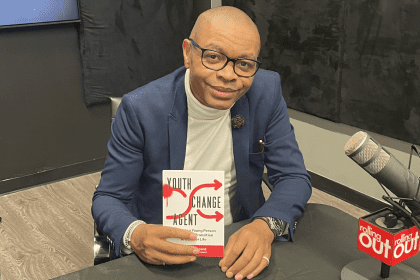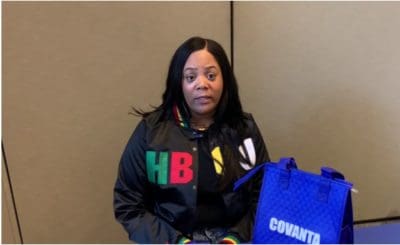As a third-generation farmer, Christina Mpilo has been always deeply connected with nature and land. After moving to the city and working closely with local community centers and trying to find community gardens to get involved in, Mpilo knew that this was something that she was destined for and could help change the world.
Mpilo, who is also the senior managing director of Soul Fire Farm, spoke with rolling out about environmental justice, factors that lead to multiple issues in the environment and where the future of environmental justice heading.
What are some other issues that lead to environmental issues that we should know about?
Stop buying fast fashion. There’s so much trash and waste that is produced from that. Eighty-five percent of textiles from fast fashion go into dumps — which mainly go to Africa and then they end up in the ocean. The average American right now produces about 82 pounds of textile waste each year, so making sure that you are connecting with makers in your community — people who make clothes — [amd] they’re going to last so much longer. You may spend a little bit more, but you’re also supporting your community. … It’s not going in the dump, either, [because] you’re going to hang on to [the items] a little bit longer. Going to secondhand stores and doing clothing swaps with your friends is another great way for that. I have a teenage daughter, and her and her friends love to do it — and I love to support that.
Another big one that I would love to see again is, around 2011 and 2012, we had this store called Tree Huggers, and it was a completely package-free store. There was no plastic and no packaging; everything you bought in bulk … They would get food grown by local farmers for their produce, so you had to bring in all your own containers and packaging. If you didn’t have it, they did have glass containers that you could buy and reuse. … The amount of money that you save on average is astounding. The majority of the cost for the food that we buy in stores comes from the packaging and the plastic, which goes back to the fossil fuel emissions because that’s how plastic is made — and it creates so many fossil fuel emissions just in the production itself. Encouraging more bulk stores in the areas — and also shopping at your farmers markets — [are] other great ways to reduce rubbish and also to engage in your community.
What are examples of fast fashion?
Like H&M. Those places where you can go and get a $15 and $20 shirt. You’re probably better off going to your local secondhand store and finding something there. I love going to Chicago and going secondhand shopping because the stuff you find is amazing. Going to those farmers markets or artist markets — and finding your local makers and your kinfolk — we have so many amazing textile artists out there who would love for you to rock their clothes. I have a handful of people that I love to have made clothes for me.
I want to support my people [and] want to support my friends, but I also like to have clothes that feel good on my skin and that are going to last. I really encourage that because if we can break away from fast fashion, then that’s also going to create a sense of sustainability within our culture and just within our lives as well. Not to mention that fast fashion is just kind of questionable all around when you think about how they treat the workers, how much the workers get paid and the factories and all the waste that comes out of those as well.









